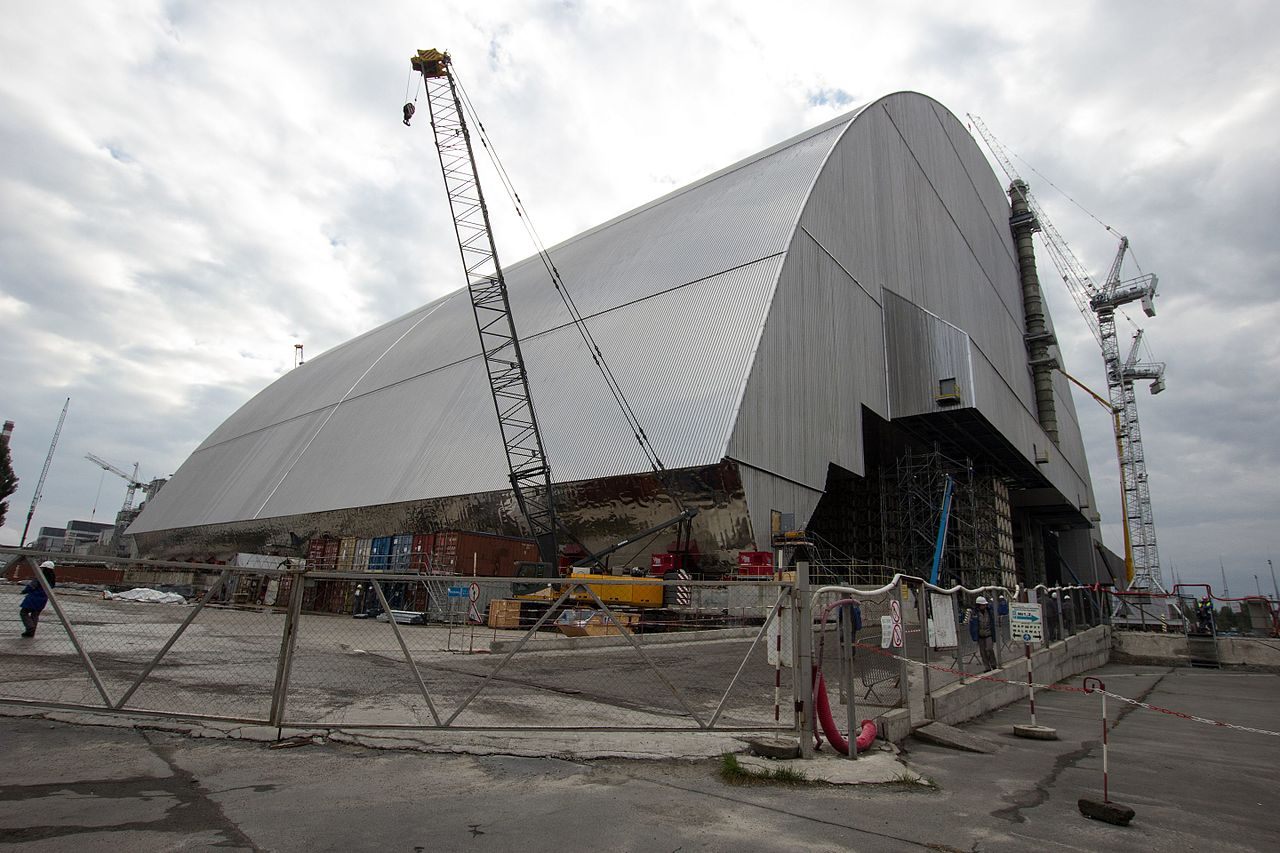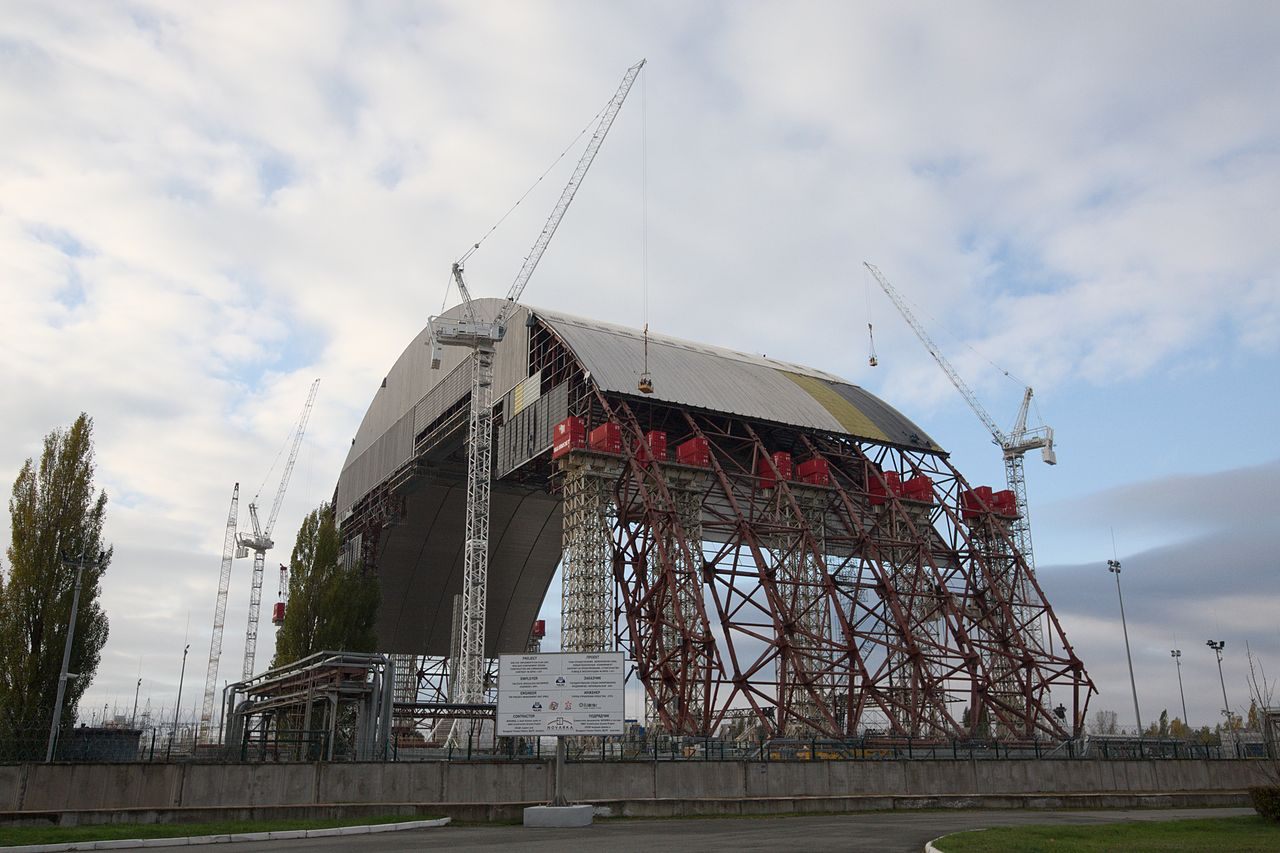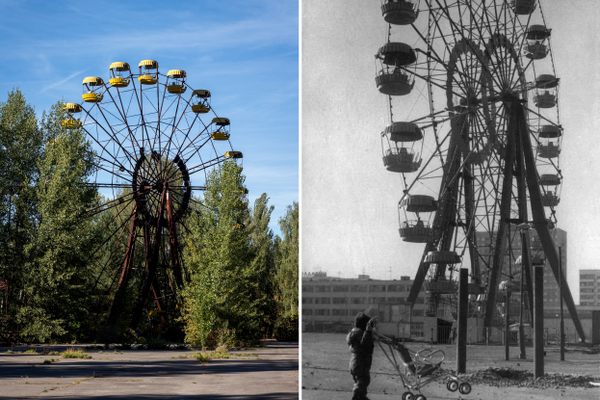Chernobyl’s Rogue Reactor Finally Gets a Better Dome
The massive structure has been slowly moving across the landscape for weeks.

On April 26th, 1986, flaws and rushed tests at Chernobyl Plant No. 4 led to the worst nuclear power plant disaster in history. Now, thirty years later, the plant will finally be contained, covered by a massive concrete and steel dome designed to effectively quarantine the building for 100 years.
Just after the disaster, the Soviet Union had a slapdash cover built over the reactor, to limit further fallout damage. (The workers who put that together did so at great personal risk, and many of them died.) But over the decades, that structure has cracked and warped, leading to further leakage. This new structure, which is known as the New Safe Confinement, is the size of ten football fields, taller than the Statue of Liberty, and cost $1.6 billion, reports the BBC. According to its main sponsor, the European Bank for Reconstruction and Development, it’s strong enough to withstand a tornado, and has a corrosion-resistant ventilation system.

The NCS has been under construction since 2012. Working anywhere close to the plant is dangerous, so it was built about 1000 feet away. Over the past few weeks, it has been slowly edged over to its final resting place—according to Newser, it’s the largest man-made structure to ever be moved across land. The final positioning is set to happen tomorrow.
Beginning in early 2017, robotic cranes will begin dismantling the old, leaky cover, and faraway crews will suck up radioactive dust using remote-controlled vacuums. And those people who have refused to leave the Chernobyl exclusion zone will have an enormous new landmark to look at.
Every day, we track down a fleeting wonder—something amazing that’s only happening right now. Have a tip for us? Tell us about it! Send your temporary miracles to [email protected].







Follow us on Twitter to get the latest on the world's hidden wonders.
Like us on Facebook to get the latest on the world's hidden wonders.
Follow us on Twitter Like us on Facebook